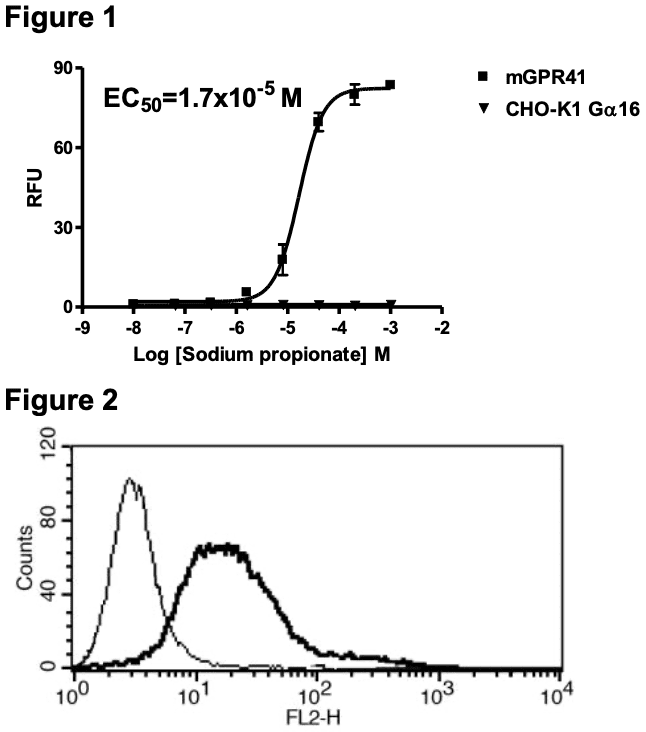Product Information
Catalog Number:
CGm1102-1
Lot Number:
CGm1102-1-090209
Quantity:
1 vial (2 x 106) frozen cells
Freeze Medium:
Sigma Freezing Medium (C-6164)
Host cell:
CHO-K1 Gα16
Transfection:
Expression vector containing full-length mouse FFA3 cDNA (GenBank Accession Number BC125009) with a FLAG-tag sequence at N-terminus
Recommended Storage:
Liquid nitrogen upon receiving
Propagation Medium: MEM alpha, 10% FBS, 800 μg/mL G418, 10 μg/mL puromycin
Stability:
Stable after two months of continuous growth
Data Sheet
Background: GPR41 or free fatty acid receptor 3 (FFAR3) shares 98% amino acid identity with GPR42 and closely related to GPR43. While GPR43 is expressed in immune cells, GPR41 appears to be expressed in blood vessel endothelial cells, particularly in adipose tissue, with significant expression also in immune cells and endothelial cells of other tissues. Propionate and short chain fatty acids have been identified as the cognate physiological ligands for GPR41.
Application: Functional assays

Figure 1. Dose-dependent stimulation of calcium flux upon treatment with ligand, measured with MultiscreenTM Calcium 1.0 No Wash Assay Kit (Multispan MSCA01). Figure 2. Receptor expression on cell surface measured by flow cytometry (FACS) using an anti-FLAG antibody. Thin line: parental cells; thick line: receptor-expressing cells.
References:
Samuel BS et al. (2008) Effects of the gut microbiota on host adiposity are modulated by the short-chain fatty-acid binding G protein-coupled receptor, Gpr41. Proc Natl Acad Sci USA 105:16767-16772.
Brown AJ et al. (2003) The Orphan G Protein-coupled Receptors GPR41 and GPR43 Are Activated by Propionate and Other Short Chain Carboxylic Acids. J Biol Chem 278:11312-9
